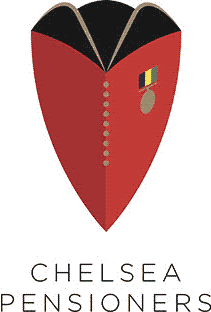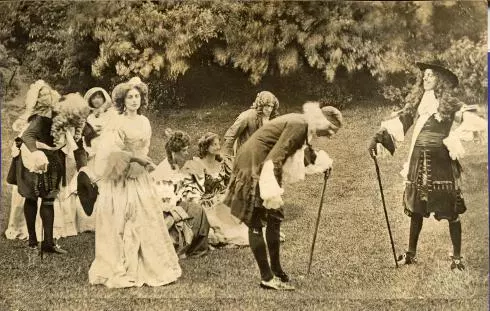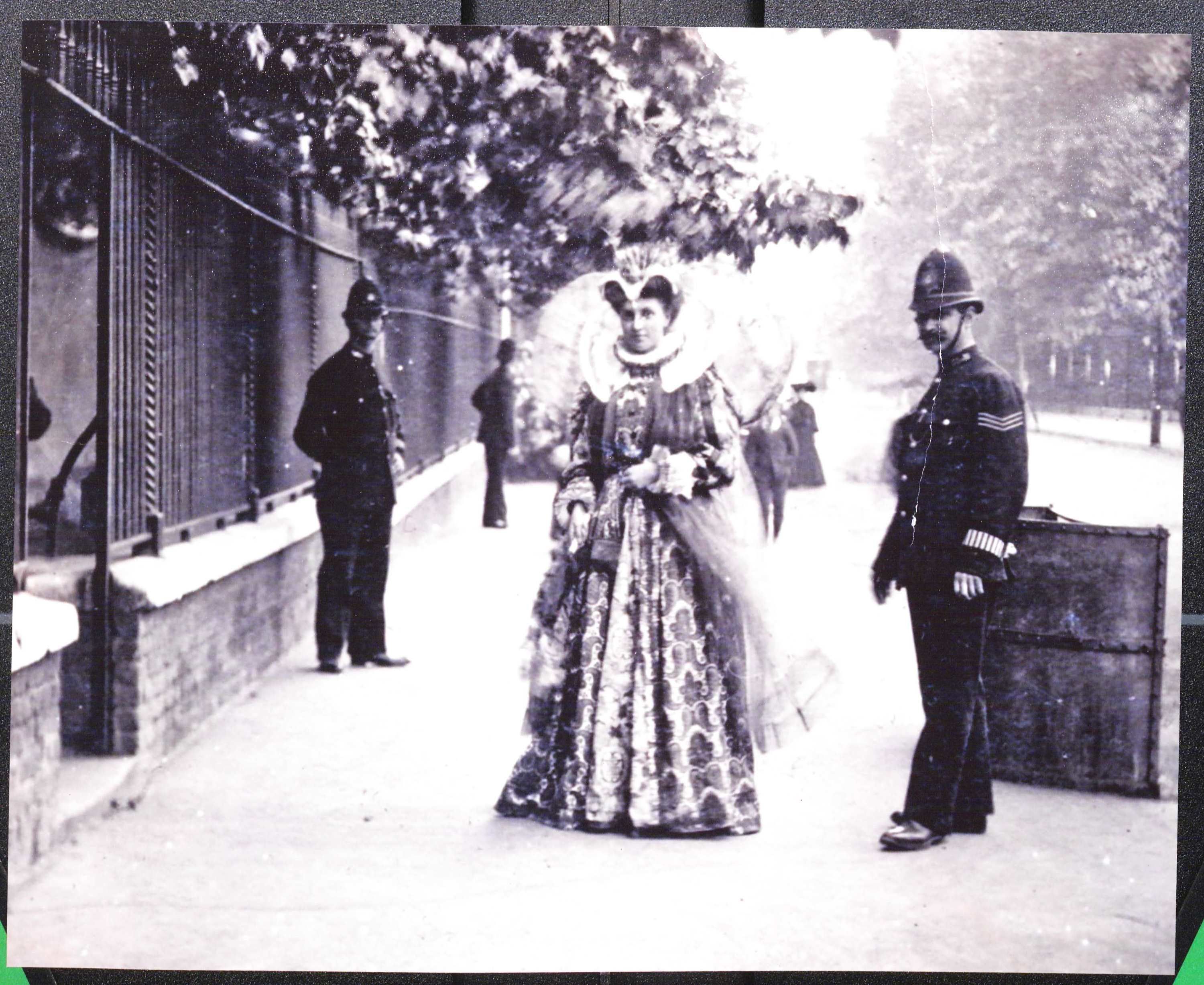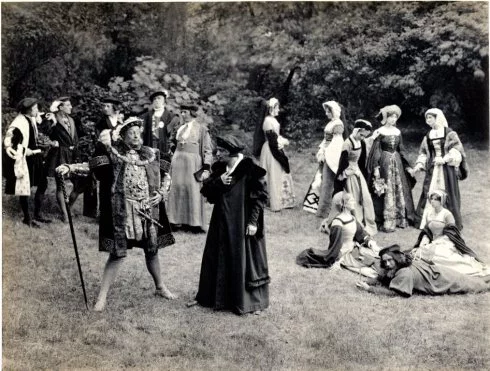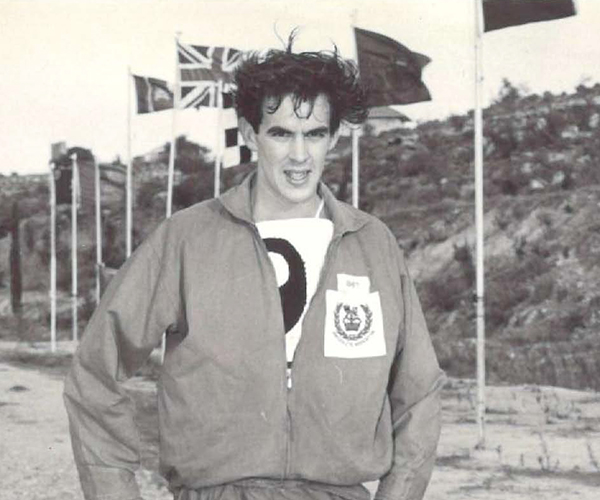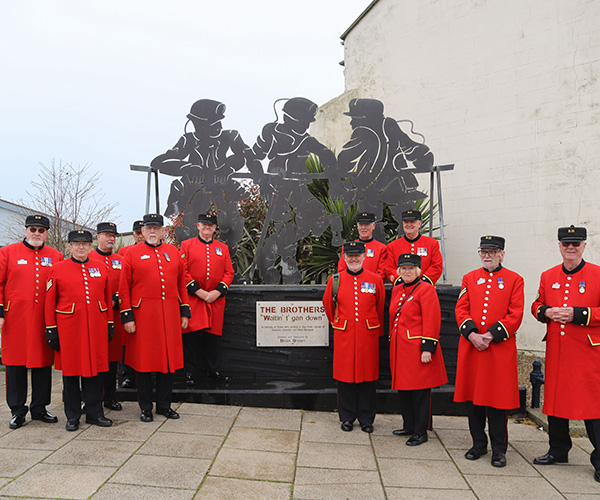Today, the historic grounds of the Royal Hospital Chelsea are enjoyed by Chelsea Pensioners and the visiting public alike. However, in the past, they have played host to some unusual and remarkable events.
The Chelsea Historical Pageant was a theatrical display that took place in Ranelagh Gardens in 1908 between the 25 June and 1 July. It comprised 10 performances depicting the most impressive historical events that Chelsea had observed since Roman times.
It was reported in the 1908 publication - The Chelsea Historical Pageant: Book of Words:
Chelsea is cheerful and will contribute to the innocent cheerfulness of men. Its dwellers are companionable people, interested in and sympathizing with one another, a little outside the turmoil of the Town, yet near enough to feel not unpleasantly some influence of its movement, some subsiding waves of what may be its greater emotions
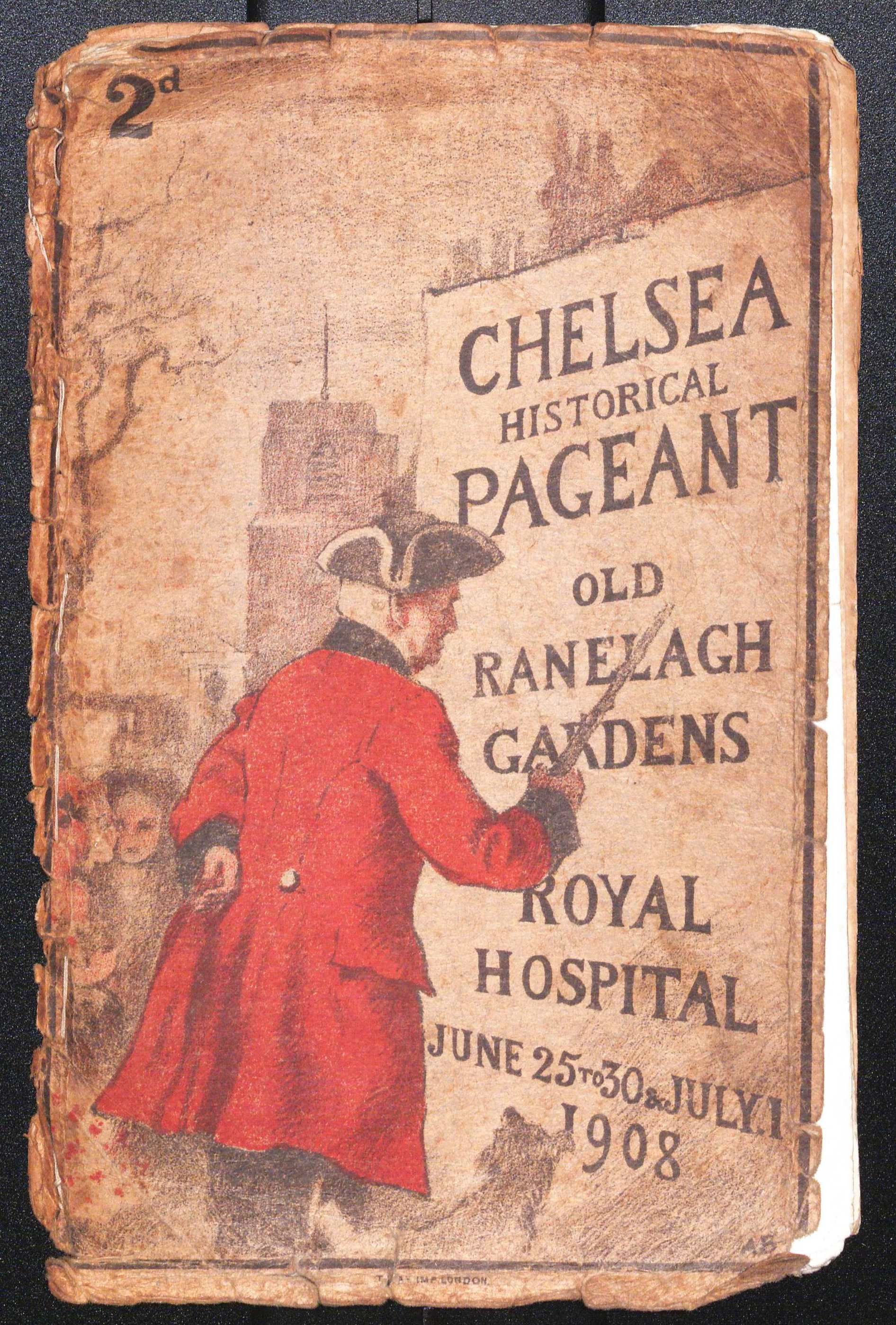 ‘Pageantitus’
‘Pageantitus’

Though it was the first pageant to be held in London, the Chelsea Historical Pageant was part of a larger national phenomenon. In the early twentieth century, Britain found itself in the grip of ‘pageantitus’ which saw tens of thousands of spectators attend costumed-dance displays and re-enactments that featured notable people and events from local history.
These hugely popular performances brought the past to life as never before and were reported in detail in ‘Pageant Gossip’ columns in local newspapers such as this excerpt from the Welsh Evening Express from 1 March 1909:
Influenza is still a fashionable disease, but it will soon be eclipsed by that still more modern form of indisposition, 'Pageantitus'...Pageantitus differs from other forms of contagious disorders in that it is willingly, if not eagerly contracted. By the arrival of midsummer every other man and woman met on the street will be a red cross knight, an ancient Briton, a dame of Wales, a damsel in distress awaiting the succour of her champion, or a good, honest, fearless, crimson, long-tailed Welsh dragon
This enthusiasm for pageants was attributed to Louis Napoleon Parker, a British playwright and composer, whose productions in Sherborne in 1905 and Warwick in 1906 inspired a wave of successive performances across the country. In addition to providing entertainment, Parker hoped that organising pageants would provide a common endeavour for all classes of society.
Pageants also became a vehicle for political campaigning, particularly for women’s suffrage. By depicting famous women from the past who were revered for their intelligence and achievements, such as Elizabeth I and Florence Nightingale, it was hoped that pageants would highlight women’s inherent capabilities without attracting the negative publicity that often accompanied protests.
A grand civic celebration
The Chelsea Pageant’s Historical Committee chose events that ‘appeared to them to cover and focus, as far as possible, the history of Chelsea, and to introduce the largest number of those historical characters which are identified with the locality’ (The Chelsea Historical Pageant: Book of Words, 1908).
Taking almost a year to plan, it was hugely ambitious, and required extensive historical research, numerous original musical compositions and the recruitment of around 1200 amateur performers.
The Times (12 June 1908) reported:
Little Chelsea, in fact, is going to show greater London how the thing ought to be done…
One performance saw Tom Heslewood, the Pageant’s lead costume designer, take on the role of King Charles II in the story of the foundation of the Royal Hospital Chelsea. Set in 1681, the performance featured key figures in the Hospital’s history, including Sir Christopher Wren, Samuel Pepys, and Sir Stephen Fox, and accredited its founding to the ‘the sweet voice and the more pressing solicitation of one, Mistress Gwyn’, in keeping with the (unverified) tradition that Nell Gwyn provided the King with the inspiration for the Royal Hospital’s foundation.
Caught on camera
This impressive event drew large crowds including royalty and local members of parliament. Involving participants of all ages in performances, the scenes and costumes were elaborate and detailed, creating a memorable spectacle. Professional photographer and suffragette, Kate Pragnell, documented the Pageant, ensuring that unique glimpses of the festivities have survived.
An event to remember
Attendees of the Chelsea Pageant were keen to buy souvenirs to take home as mementos of this memorable occasion. In the late 19th and early 20th centuries, it was common for paper napkins to be printed and sold at public events or ceremonies in London that attracted large crowds. They often served a dual purpose; as well as being keepsakes they provided practical information about the event, such as a programme or timetable of scheduled activities.
Like countless other examples at the time, this paper napkin from the Royal Hospital Chelsea’s collection was printed by Mrs Sarah Burgess of 14 Artillery Lane, Bishopsgate. Known as ‘Auntie’ to London’s street sellers who sold her wares, she was a wholesale and export stationer who manufactured and sold paper switches, cut tissues, lace paper and shelf trimmings, and confetti (Crawford, 2017).
Produced to commemorate the Chelsea Historical Pageant Ball, the napkin also lists the 10 historical events that would be performed:
Centenary celebrations
For two nights in June 2008, the centenary of the Chelsea Historical Pageant was celebrated in the grounds of the Royal Hospital Chelsea. 3,500 spectators were treated to performances based on events in the Hospital’s history, including the original Pageant. The voices of historical figures were provided by famous actors including Dame Judi Dench, Timothy Spall, and Joanna Lumley with music provided by the Household Cavalry’s State Trumpeters, the Band of the Life Guards and the Choir of the Royal Hospital. Celebrations in the evening culminated in a spectacular fireworks display.
Images courtesy of the Royal Borough of Kensington, Bridgeman Images and Chelsea and the Royal Hospital Chelsea
